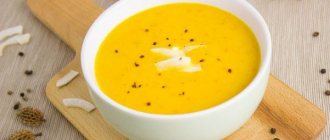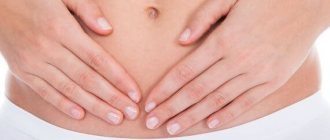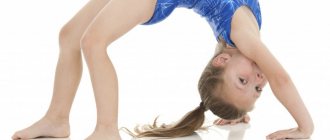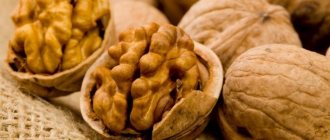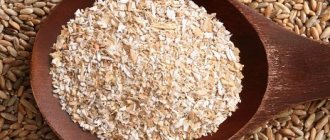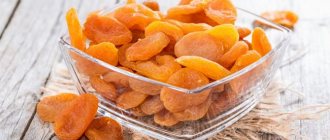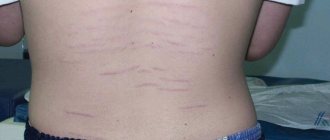Constipation is not always given the attention it deserves. They are mainly considered as an additional symptom. Patients rarely consult a doctor separately for this reason. Although such complaints are often revealed during surveys. According to statistics, up to 50% of Russian residents suffer from this problem.
The diagnosis of “constipation” is made if bowel movements (defecation) occur less than three times a week or more often, but with a small amount of feces, as well as when food passes through the gastrointestinal tract for a long time (5 days or more). The condition can be acute or chronic.
In children, the concept of constipation is quite vague due to age-related characteristics of the structure and functions of the digestive system. So, for children under 6 months, even the appearance of formed stool is considered constipation, and not just rare bowel movements.
Constipation symptoms
The symptoms of constipation depend on its causes, duration and bowel conditions.
For acute constipation
There is no stool for several days, which may be due to mechanical (with an intestinal tumor) or dynamic obstruction (with inflammation, diverticulitis).
Constipation during tumor processes increases over several weeks and is accompanied by intoxication. Inflammatory diseases of the abdominal organs may cause abdominal pain and fever.
With hemorrhoids or anal fissure, pain and bleeding from the rectum may occur.
For chronic constipation
Chronic constipation can be diagnosed when 2 or more of its symptoms are detected during 12 weeks in the last 6 months:
- spontaneous bowel movements less than three times a week,
- dense feces (formation of “sheep” or “goat” feces),
- feeling of incomplete bowel movement,
- the need to forcefully cleanse the intestines,
- severe straining during defecation.
Chronic constipation is also often accompanied by bloating, aching, bursting or cramping pain. Belching and an unpleasant taste in the mouth may occur.
General intoxication gradually develops with symptoms such as headache, sleep disturbances, irritability, depression, fatigue and others.
Causes and mechanisms of development of constipation
Many reasons trigger the mechanisms for the development of constipation:
- Colon motility disorders. Moreover, at first they develop according to the type of hypermotility, after which peristalsis and tone of the colon weaken.
- Reduced urge to have bowel movements.
- Disorders of the anatomy of the colon or neighboring organs that interfere with the normal movement of feces.
- Discrepancy in the volume of feces and large intestine.
Let's look at the causes of constipation.
Doctors are more likely to encounter functional constipation, which can result from:
- external factors that inhibit the natural urge to defecate: unfavorable environment (for example, during travel), disturbances in sleep and work patterns, personality traits (difficulties when using a public toilet, when visiting, etc.).
- Dietary habits: lack of plant fiber in food, certain types of foods (cheese and others).
- A sedentary lifestyle or bed rest due to illness leads to muscle weakness, including the abdominal muscles and smooth muscles of the intestines, which is why hypodynamic constipation develops.
- Hormonal disorders: hypofunction (insufficient production of hormones) of the thyroid gland, pituitary gland diseases, diabetes mellitus, increased production of progesterone during pregnancy.
- Long-term use of certain medications. Cleansing enemas and laxatives can also cause constipation.
- Fear of pain with hemorrhoids or fissures also leads to impaired bowel movements and constipation.
Organic (mechanical) constipation can be caused by the following reasons:
- neoplasms in the intestines;
- scars and, as a result, narrowing of the intestinal lumen;
- congenital anomalies (elongation, sharp narrowing, violations of intestinal fixation, etc.).
What to eat for constipation
With a low-carbohydrate diet, constipation is observed, which is provoked by an increased content of fats and proteins in the diet.
To increase the carbohydrate content, diversify your diet with nuts, vegetables, fruits, berries, cereals, mushrooms, and legumes. They contain a small amount of carbohydrates, but are rich in fiber, so they help restore normal bowel movements.
It is advisable to consume foods that do not require long-term heat treatment - they will retain maximum nutrients and fiber.
Bran (wheat, rye) is known to be beneficial for the intestines. Pour hot water over the product and let it swell for half an hour. The mixture is consumed separately or added to other dishes, increasing the amount daily. You need to start with a small dose - no more than 5 g/day.
Do not rush to use laxatives for constipation. Under the influence of drugs, the body gradually loses the ability to independently cope with the process of defecation or, in other words, loses the habit of doing so. Over time, this leads to intestinal diseases, which will be impossible to fight without the help of a doctor.
If you cannot do without the use of medications, consult a doctor who will recommend a suitable drug. It is also necessary to seek the help of a nutritionist in cases where it was not possible to improve the functioning of the body with the help of proper nutrition and physical activity.
If adjustments to your diet and lifestyle do not produce results, the chosen diet is not suitable for your body.
Complications of chronic constipation
The most common complication, which entails the others, is stagnation and compaction of feces in the intestines, the so-called coprostasis. Elderly patients and those who are on bed rest for a long time suffer from it especially.
Later you may experience:
- haemorrhoids;
- intoxication of the body with the appearance of nausea, vomiting;
- inflammation of the large intestine;
- urinary retention and kidney dysfunction due to pressure from the rectum on the bladder;
- atony or “lazy” bowel – the inability to empty yourself due to frequent use of enemas and laxatives;
- mechanical intestinal obstruction and peritonitis are the most serious complications that require immediate surgical intervention.
Obviously, constipation is a condition that requires serious treatment and timely consultation with a doctor.
constipation on diet
constipation on a diet. It doesn’t matter whether we are talking about constipation on the Dukan diet or constipation on a protein diet. Problems with bowel movements on a diet can occur with any type of restriction, and today we will figure out what to do in this or that case.
Constipation on a diet
Today I will answer a question from a FreshLife28 channel subscriber. A sensitive topic is what to do if we have constipation while dieting or cutting. So, today is that very rare case when the topic that this video concerns affects absolutely equally both people who are simply going to lose weight for the summer and those people who are cutting.
I have already repeated, and I will repeat again, that cutting and losing weight are two different things. But in this matter, problems with stool in both cases are of the same nature, and they are solved by the same method, because they have the same cause. In order to answer the question about constipation on a diet, let’s go back a little and remember what happened when we didn’t have problems with bowel movements, when we weren’t on a diet and weren’t losing weight.
We were either gaining weight, or we were just simply maintaining some kind of routine. This means that we naturally composed our diet of proteins, fats and carbohydrates. If we were on a proper diet, then our carbohydrates were complex, with a low glycemic index. And it is low in our cereals, such as buckwheat, oatmeal, pearl barley, etc.
It’s low for a reason; it’s low because these same cereals contain dietary fiber – fiber. Regarding fiber and the importance of fiber in the diet, I wrote this article, please read it , I insist, it’s for 5 minutes, but it will give you an idea of what it is, why it is very, very important, these important dietary fiber.
Constipation on a diet video
Constipation on a diet. Cause.
But now we will return to the fact that we decided to lose weight. And we are either drying out, or we have simply cut down on calories, due to which we are losing weight. In order for us to lose weight properly, we have two conditions. We must have a caloric deficit and a fairly low insulin level, because lipolysis does not occur at high insulin levels, and we want to get rid of fat.
So, in order to lower insulin levels, we naturally cut carbohydrates. And it turns out that along with the reduced portions of carbohydrates, our body receives less dietary fiber, less of this very fiber, otherwise there is no other way. And what do we get as a result? As a result, it turns out that fiber, as I already said in the video , fiber forms the volume of intestinal contents, the volume of feces.
It can be water-soluble, it is a very good sorbent, and water-insoluble, it stimulates intestinal motility very well, i.e. movement of food through the intestines, direct evacuation through the rectum with feces. When we cut our carbohydrates, and we always cut carbohydrates, when we are cutting, or when we are on a diet, then automatically we cut down on fiber intake and automatically our intestinal contents decrease.
I remind you that fiber is such a tricky carbohydrate that cannot be used by our carcass as energy, it is not processed enzymatically by our system, it is processed directly by our intestinal microflora, i.e. bacteria. Therefore, there is no need to be afraid of it, no matter how many calories you write on this bran or on broccoli, you, in general, will not use them as energy, and accordingly, the body will not be able to use it in any way. It will be easily processed in your microflora and will be excreted in your feces.
Solving bowel problems with diet.
What to do if you are constipated on a diet? This can be solved very simply. Increase your insoluble fiber intake. It can be used as a dietary supplement according to the instructions. I use this one, which you now see in the picture above, I have it in a jar just for that case.
In addition, I highly recommend increasing your intake of water-soluble fiber sources, water-soluble fiber sources such as broccoli, green beans, green beans, etc. A complete list of foods containing fiber can be found at this link .
Constipation on a diet. About water.
So, just so you know, if we cut back on carbohydrates, along with the complex carbohydrates we cut, we also cut back on fiber. But it is advisable not to get rid of fiber, because this can lead to problems with stool and, of course, do not forget about water. You need to drink water, you definitely need to drink water when you are drying and on a diet, and drink a lot, because the body directly uses fats as fuel, and fats are quite energy-intensive with a large exhaust, a fuel supply, energy-intensive, but very dirty. Dirty from an exhaust point of view. In order to utilize all the breakdown products of fats, you need a lot of water. Therefore, do not forget to drink, this also greatly affects problems with stool and going to the toilet.
What should it be? It should be like this, regardless of whether you are on a diet or cutting, you should go to the toilet at least once, and maybe even 2 times. Now I’m not specifically touching on the final stage of drying, because I’ll probably still separate the concept of drying as such and eyeliner, eyeliner for a photoset with draining the water, etc. We don't take this. But if you are cutting, those 8 weeks of cutting or the 16 that you are going through, or if you are losing weight for the summer, please know that since you have reduced your carbohydrate intake in order to lower your caloric intake and lower your blood insulin levels in order to fat burning has begun, you have automatically reduced your dietary fiber intake. And it must be added either from dietary supplements, or directly from sources of water-soluble fiber or from bran, or from some other products.
Well, my friends, that's all for today. Subscribe to the channel , I remind you that Basilio was with you, the only specialist on starting and not giving up a new life on Monday, FreshLife28 channel . Bye-bye everyone.
When and who to contact for constipation
If constipation begins to recur periodically, and laxatives are already in your home medicine cabinet, you should schedule a visit to the doctor. Timely diagnosis will help identify the cause of the disease. The doctor will prescribe adequate treatment that will alleviate the condition and avoid complications.
You can seek help from a proctologist, therapist or gastroenterologist who diagnoses and treats diseases of the digestive system. Do not put off visiting a doctor if constipation is accompanied by abdominal pain, intoxication and other symptoms. This condition may require urgent medical attention.
Diagnosis of constipation
During your initial visit, the doctor will conduct a full examination, ask about your medical history, concomitant diseases and find out hereditary factors, analyze your eating and behavioral habits, and then prescribe an additional examination.
The list of diagnostic procedures includes:
- Digital examination of the rectum;
- Sigmoidoscopy - examination using a sigmoidoscopy device allows you to determine the presence of hemorrhoids, fissures, and neoplasms of the rectum;
- Laboratory tests: general blood and urine analysis, blood biochemistry, stool tests (coprogram, stool occult blood test and bacterial culture);
- Additional instrumental studies: Ultrasound of the abdominal organs, irrigoscopy - X-ray examination of the intestines using a contrast agent to determine the time of passage of food through the gastrointestinal tract and other features, colonoscopy - examination of the large intestine using an endoscope, a biopsy of the mucous membrane is also possible (sampling a piece of tissue);
- Special studies to determine the condition of the sphincters and pelvic floor muscles;
- Consultations with related specialists – endocrinologist, gynecologist.
If no organic causes of constipation are found, the doctor diagnoses “functional constipation” and chooses the appropriate treatment tactics.
Treatment of constipation
Therapeutic measures begin with emptying the intestines using an enema or lactulose drug. The treatment regimen is developed individually depending on the causes, duration of constipation, your age and condition.
The doctor may recommend:
- diet changes: eating foods with a lot of fiber, increasing the daily volume of fluid to at least 2 liters per day, taking dietary bran;
- drug therapy:
- laxatives (herbal or synthetic) with gradual dose reduction and withdrawal;
- — prebiotics – to normalize intestinal flora;
- - antispasmodics;
measures to treat a disease whose symptom is constipation.
Treatment is aimed at restoring normal bowel movements and bowel functions, improving quality of life and preventing complications.
Common nutrition mistakes
The following dietary habits can lead to constipation:
- consumption of foods and drinks that slow down intestinal motility: crackers, rice, jelly, pomegranate fruits and pomegranate juice, etc.;
- regular overeating;
- starvation;
- an abundance of baked goods, confectionery, chocolate in the diet;
- insufficient consumption of clean water (less than one and a half liters per day).
These eating habits can not only cause constipation, but also aggravate existing disorders.
Constipation in infants and young children
The development of constipation in children is possible from the first days of life. This is one of the most common complaints that mothers present to the pediatrician. The fact is that the intestines still continue to form after birth, they are populated by microflora, and digestion capabilities are very limited.
As you grow older, the problem of constipation may worsen. This is evidenced by data from pediatric gastroenterologists: up to 50% of children continue to suffer from constipation in the next 5 years of life, and in 25% constipation persists into adulthood.
The concept of constipation in infants is quite vague, so parents do not always seek help in time.
When breastfeeding, the frequency of stool can correspond to the number of feedings, and the stool should be mushy. With artificial feeding, the norm is considered to be stool once a day, with a break of no more than 24 hours. Having lumps or hard stools is also considered a sign of constipation.
Additional symptoms of constipation in young children include abdominal pain, sleep and appetite disturbances, restlessness, crying, bloating and pain. 95% of constipation in children is functional.
An accurate diagnosis and treatment is prescribed by a pediatrician or pediatric gastroenterologist. Timely help with constipation is very important for the full growth and development of the child.
How can an adult get rid of constipation while dieting?
When choosing a diet, remember the main thing: strict restrictions on the volume and calorie content of food can bring you systematic constipation and poor digestion instead of beauty and health. Therefore, to prevent your diet from becoming a test for your health, follow a few simple rules:
Adjust your chosen diet for adults to prevent recurrent constipation:
- drink at least 1.5 - 2 liters of water per day;
- add fiber-containing foods (fruits, vegetables and whole grains) to your menu. They contain not only dietary fiber, but also essential vitamins and minerals;
- eat in small portions, increasing the number of meals to 5 - 6 times a day - this will help regular bowel function.
The most useful foods for constipation in adults during a diet are:
- fruits and vegetables, dried fruits (prunes, figs, dried apricots), as well as fruit and vegetable juices, carrot or beet puree;
- fermented milk products, primarily fresh kefir and yogurt;
- bread made from whole grains, wholemeal flour or bran;
- compotes from berries and dried fruits, as well as juices with pulp;
- buckwheat and oatmeal porridge.
Adults who experience constipation while dieting should avoid the following foods:
- various jelly, especially blueberry;
- cocoa and strong black tea;
- semolina and rice porridge.
If constipation occurs during the diet, you can choose the mild laxative Duphalac®, which treats constipation and naturally restores normal bowel function. The drug does not irritate the intestinal mucosa, stimulates the growth of bifidobacteria and lactobacilli, thus solving two problems at once: eliminating constipation and restoring the balance of intestinal microflora.
And one last thing. To ensure that a diet truly benefits an adult, consult your doctor before deciding to follow it. Be attentive to yourself, only in this case you will not miss alarming symptoms and will not lose your main wealth - good health.
Co-author of articles, editor - Shimbaretsky Georgy Alekseevich.

